Gates of Hell in Turkmenistan: Unveiling the Mysteries of Darvaza Gas Crater
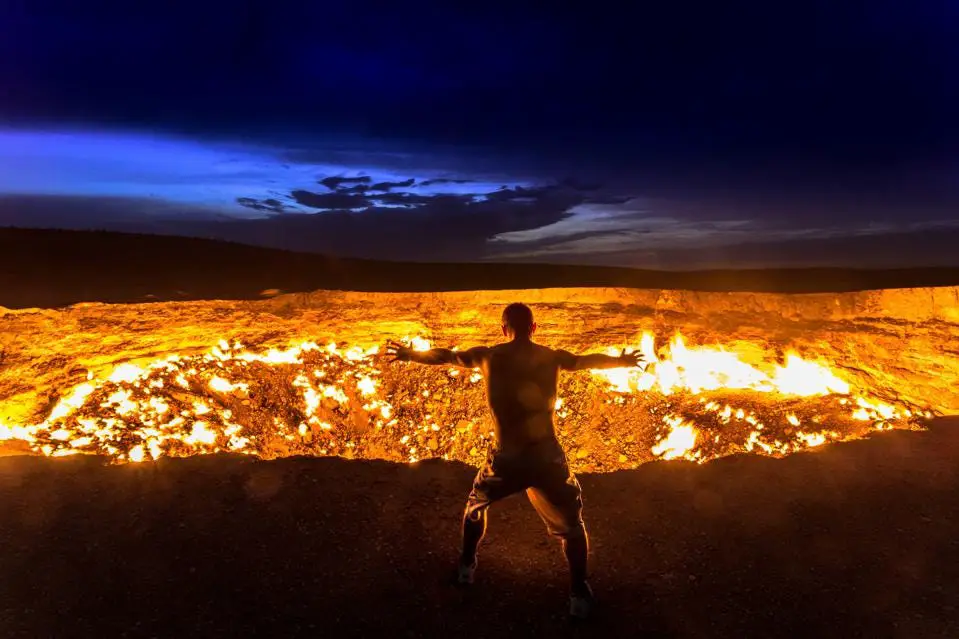
The Gates of Hell, also known as the Darvaza Gas Crater, is a natural wonder in Turkmenistan’s Karakum desert. It is one of the world’s most fascinating and mysterious natural phenomena.
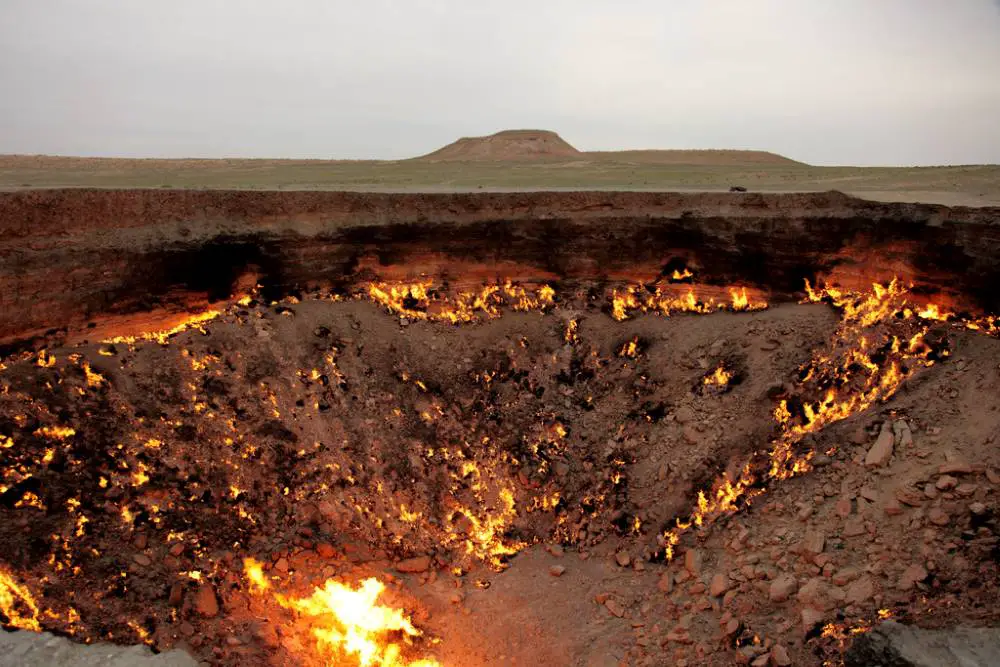
Due to the presence of natural gas, the crater is 70 meters wide and 30 meters deep and is constantly burning. The burning gas has created a surreal and mesmerizing sight that has attracted visitors from all over the world.
The History of Darvaza Gas Crater
The Gates of Hell story began in 1971, when Soviet geologists were drilling for oil in the Karakum desert. They came across a massive underground gas pocket, and their drilling rig, heavy equipment, and surrounding campsites all collapsed into it.
To prevent the spread of poisonous gas, they set fire to the crater, believing that the fire would burn out in a few days or weeks.
However, the fire has been burning for over 50 years with no end in sight. The Darvaza Gas Crater has since become a tourist attraction, with visitors coming from all over the world to see the fiery spectacle.
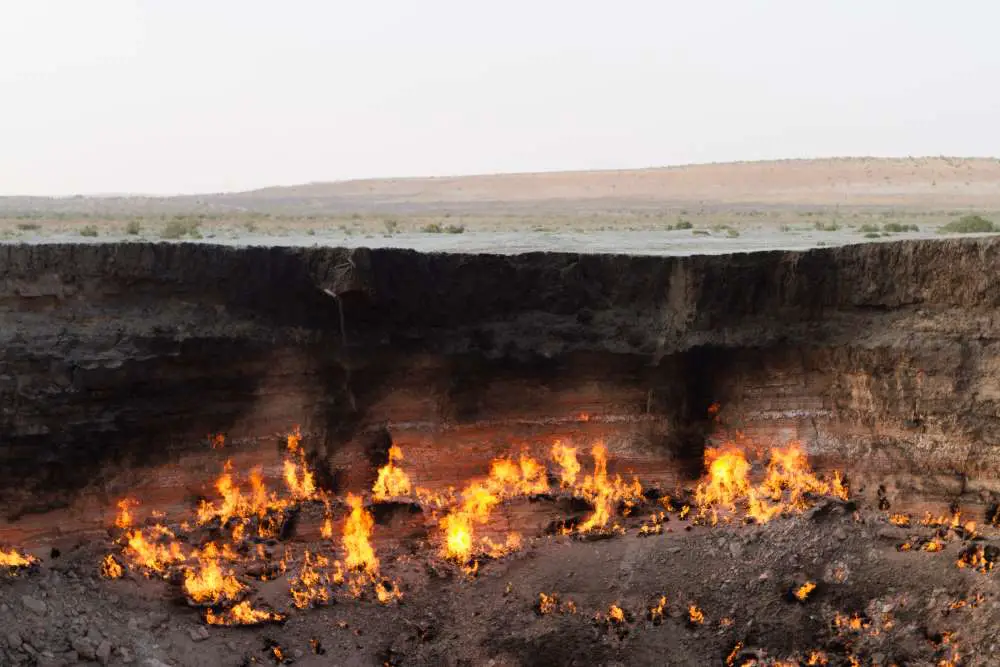
The Science Behind the Darvaza Gas Crater
The Darvaza Gas Crater was formed as a result of natural gas accumulation that has been burning for more than 50 years.
The gas field beneath the crater is considered to be one of the world’s largest, with reserves of more than 200 trillion cubic feet of natural gas.
The crater is filled with natural gas, which is highly flammable and easily ignited. The gas pocket’s high pressure and temperature caused the gas to seep out of the ground, creating the hole in the earth’s surface.
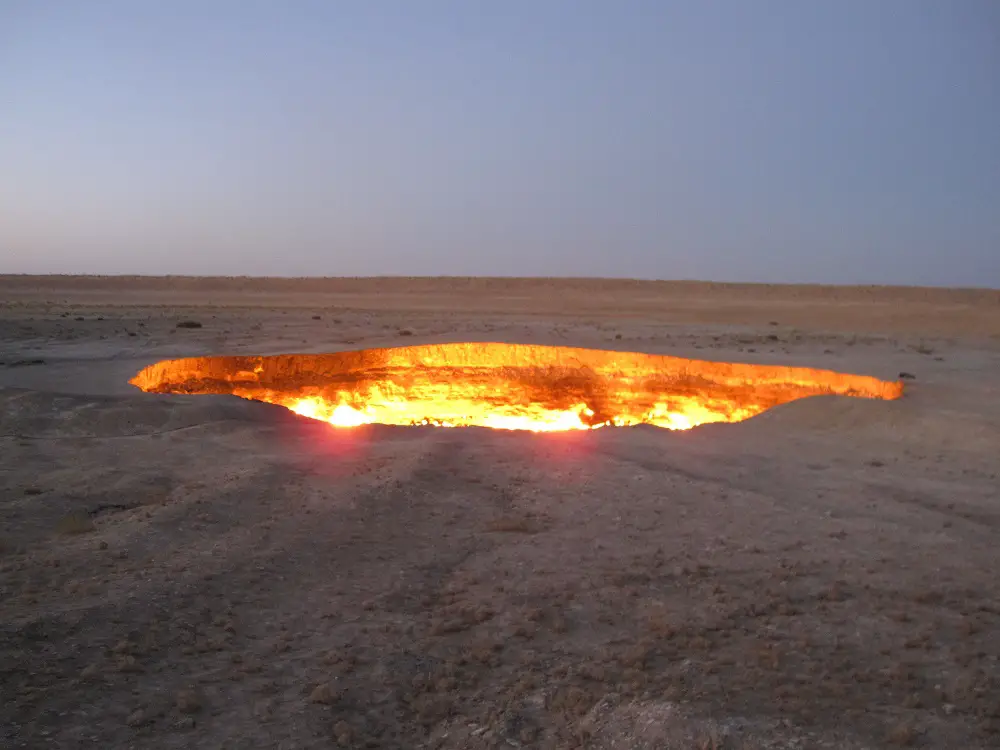
The constant release of methane and other gases from the underground reservoir feeds the fire. Because methane gas is highly flammable and easily ignited, the crater has been burning for a long time.
The temperature inside the crater can reach 1,000 degrees Fahrenheit, making it one of the world’s hottest locations.
The Darvaza Gas Crater and Climate Change
The Darvaza Gas Crater is an amazing natural wonder, but it also contributes to global warming and climate change.
The combustion of natural gas emits carbon dioxide and other greenhouse gases into the atmosphere, trapping heat and contributing to global warming.
It is estimated that the crater emits more than 5 million cubic meters of methane gas per year, which is equivalent to the annual emissions of over 700,000 cars.
The Turkmen government intends to develop the region’s natural gas reserves, which could potentially increase greenhouse gas emissions.
It is critical to find ways to reduce the carbon footprint of the gas industry and mitigate the impact of these emissions.
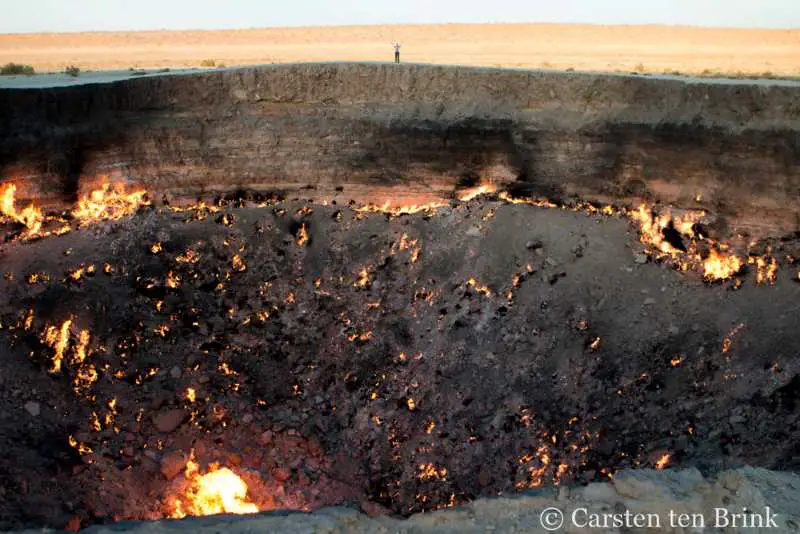
Is it safe to visit the Darvaza Gas Crater?
Yes, visiting the Darvaza Gas Crater is generally safe. Visitors are advised to be cautious and stay away from the crater’s edge, as the ground can be unstable. It is also recommended that you go with a guide who is familiar with the area and can give you safety advice.
How long has the Darvaza Gas Crater been burning?
The Darvaza Gas Crater has been burning since 1971, for over 50 years.
Can the fire at the Darvaza Gas Crater be extinguished?
Although it is technically possible to put out the fire at the Darvaza Gas Crater, doing so is not recommended. Controlling the flow of gas is difficult due to the gas pocket’s high pressure and temperature, and if the fire were extinguished, the crater might collapse.
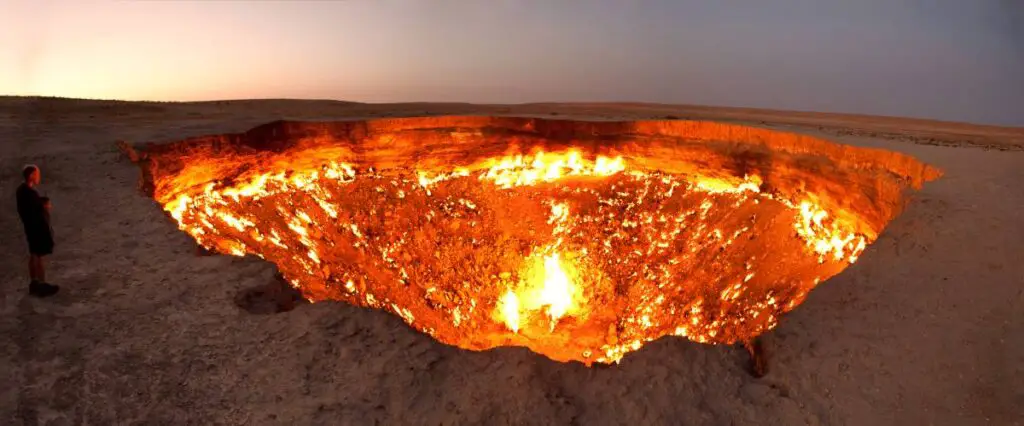
President Gurbanguly Berdymukhamedov reportedly ordered the closure of the Darvaza Crater. Despite the fact that the crater has become a tourist attraction, Berdymukhamedov has requested that his cabinet find a way to close the proverbial gates, according to the state-run newspaper Neytralny Turkmenistan.
According to the newspaper, Turkmenistan’s deputy prime minister “was instructed to gather scientists and, if necessary, foreign specialists to find a solution to extinguish the fire.”

If you want to spice up your vacation with a little danger, Here are the Top 10 Most Dangerous Locations in the World.
